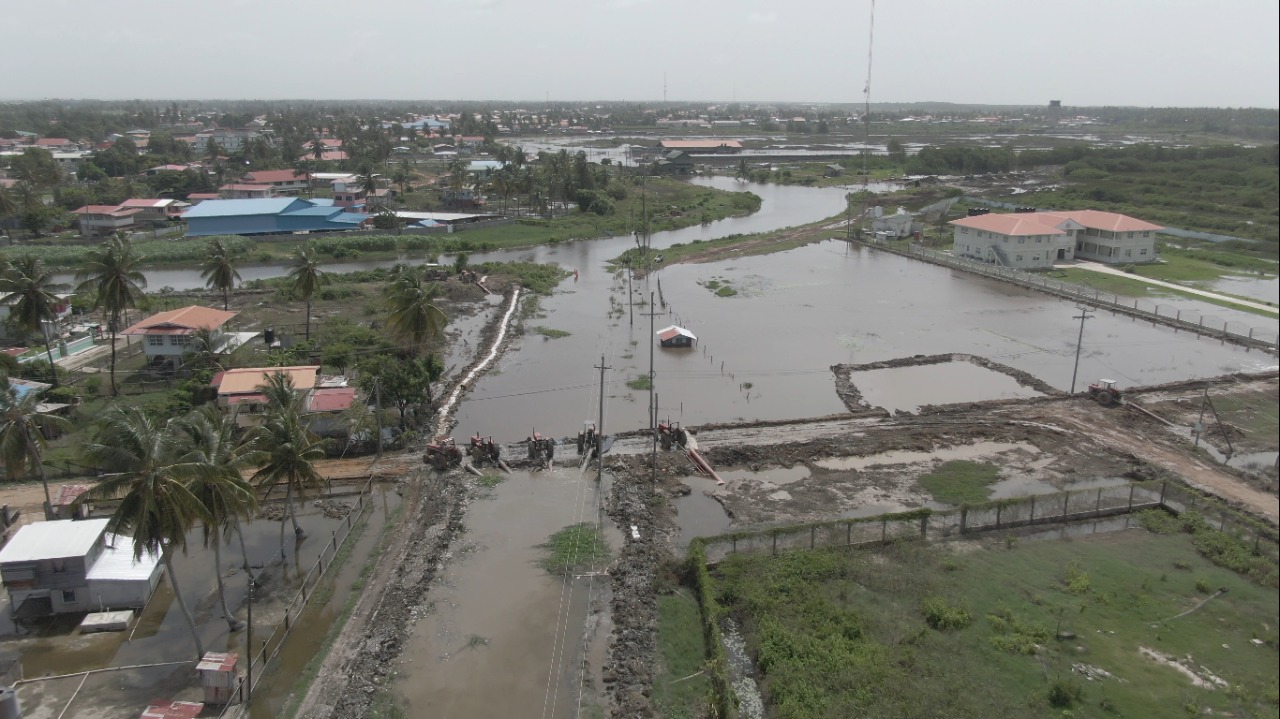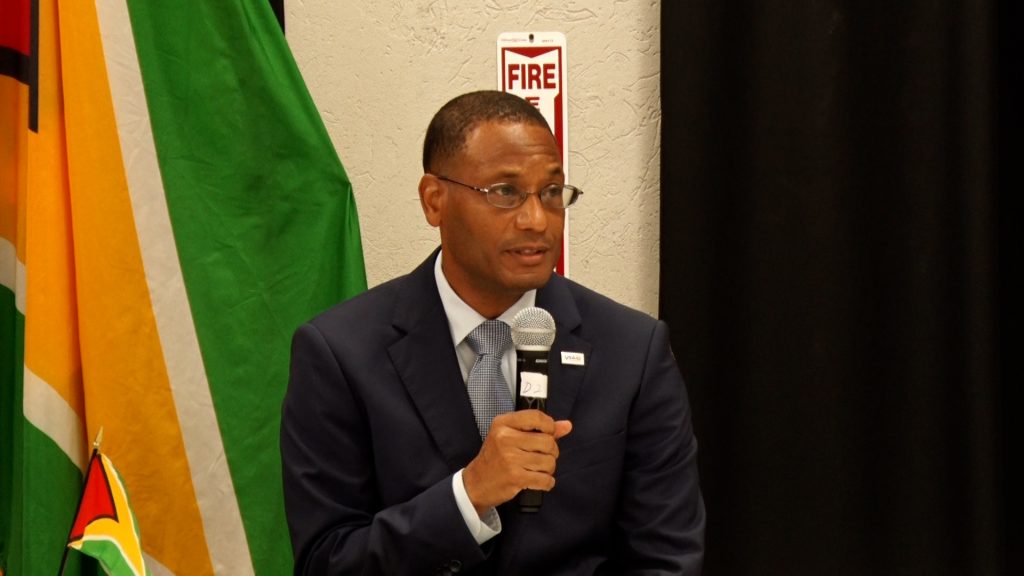
The United States Agency for International Development (USAID) has made a US $30,000 donation (or GY$6.2 million) to immediate flood relief efforts in Guyana, according to the USAID Eastern and Southern Caribbean’s Regional Representative Clinton White.
During a press engagement on Wednesday, White noted that climate change has become an essential part of United States President Joseph Biden’s foreign policy.
As such, he related that USAID would be seeking to work along with Caribbean countries to strengthen their awareness of and preparedness for the impact of climate change.
Climate change, according to the Environmental Protection Agency (EPA), refers to any significant change in the measures of climate lasting for an extended period of time. These can include major changes in temperature, precipitation, or wind patterns, among other effects, that occur over several decades or longer
Already, White said, the ongoing nationwide flooding presents a stark example of the devastating impact climate change can have on countries and the need for a concerted effort to tackle the global phenomenon.
To provide some relief to communities across Guyana, White said that US $15,000 of the allocated amount will go to the Guyana Red Cross Society for the local purchase and transportation for relief hampers, including cleaning and personal hygiene kits.
An additional US$15,000, he said, will be provided to the Civil Defence Commission (CDC) to aid in transportation of relief items to priority regions.
On Wednesday, Senior Response Officer at the CDC Captain Salim October, has reported that 36,083 households in 300 communities have reportedly been affected by severe flooding. Though the entire country has been impacted by flooding, he said that Regions Two, Five, Six, Seven and 10 remain the most impacted.
“Our bureau for humanitarian assistance continues to engage and monitor the situation with the CDC and other key organisations,” the regional representatives related also.
Beyond the impact of flooding in Guyana, White noted that the Caribbean region is particularly vulnerable to the effects of climate change.

“The impact of climate change in the region is huge, personally, environmentally and economically. Such costs affect the countries’ competitiveness in international tourism, agriculture and other markets thereby reducing employment and income in these sectors of the economy,” he said.
Additionally, he highlighted that the efforts of climate change have a disproportionate impact on vulnerable groups such as women, children and the elderly.
Earlier on Wednesday, White said that a Memorandum of Understanding (MOU) was signed with three regional partners: the Caribbean Community Climate Change Centre, the Caribbean Institute for Meteorology and Hydrology, and the Caribbean Disaster Emergency Management Agency.
This MOU signifies the collaboration between the parties to build the region’s awareness, preparedness, and action steps to counter the impact of climate change.











